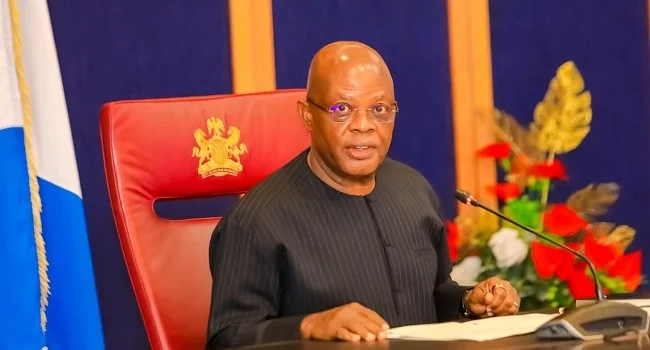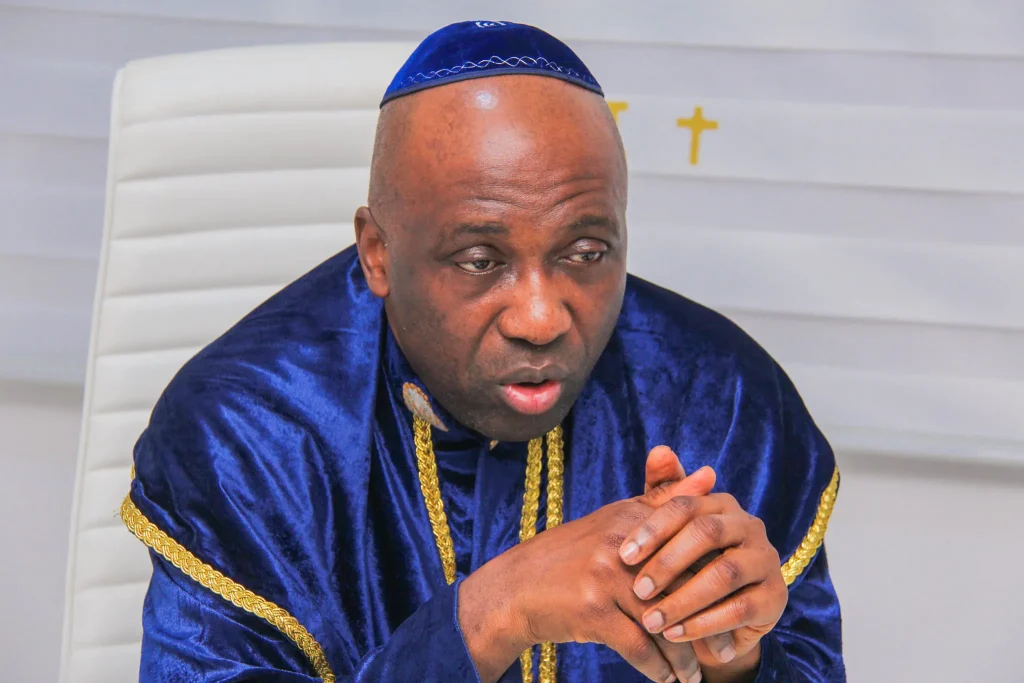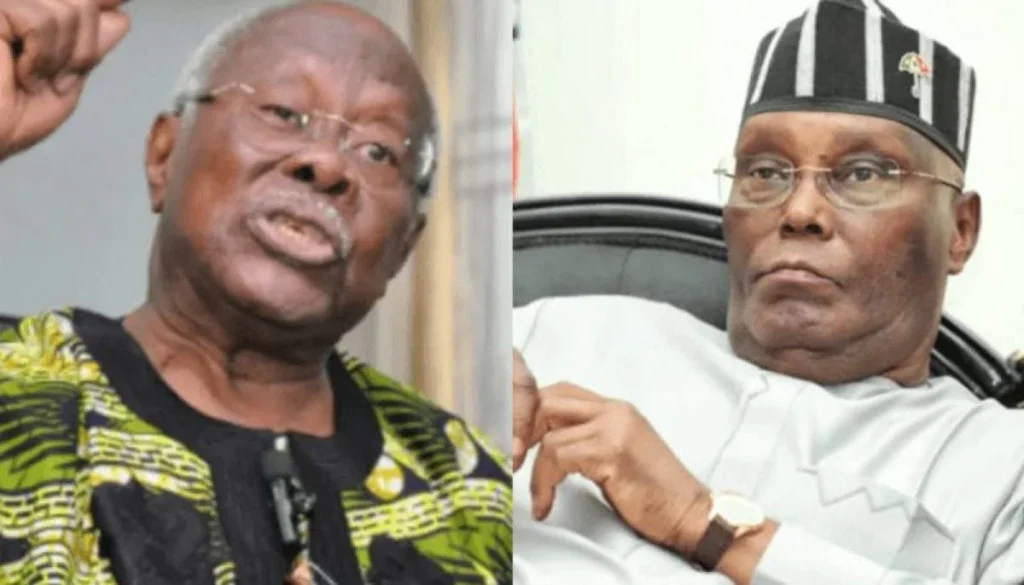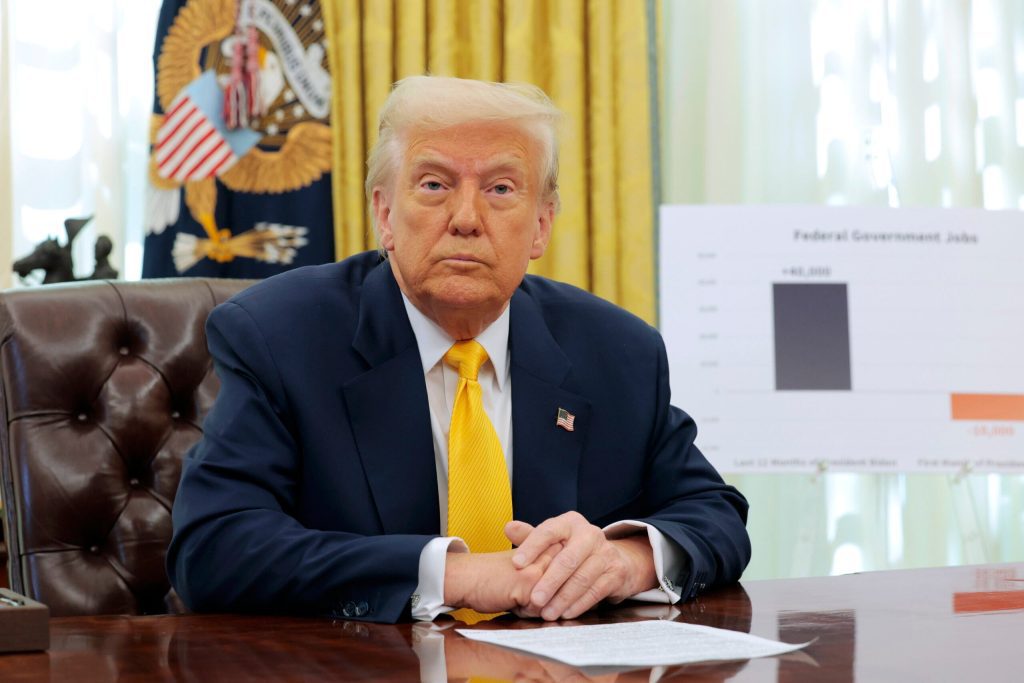Chief Magistrate Ejike King George has stepped down from his position in the Rivers State judiciary, citing fundamental disagreements with the current political direction of the state under a quasi-military administrative structure.
In a formal resignation letter dated April 11, 2025, George addressed his decision to the Chief Judge of Rivers State, routing it through the Secretary of the Judicial Service Commission. His letter expresses a deep unease with the transformation in governance, which he believes starkly contradicts the democratic principles the judiciary has long upheld.
Disapproval of the State’s Leadership Direction
George stated unequivocally that the recent political developments in Rivers State compelled him to resign. According to him, continuing in his judicial role while the state veers away from democratic norms would imply silent endorsement of an administration he fundamentally opposes.
In the resignation letter, he wrote, “This painful but necessary decision stems primarily from my discomfort with the imposition of a quasi-military regime to oversee the affairs of a modern democratic state such as ours.” He went on to describe the new political arrangement as both “foreign” to the established political tradition and “incompatible” with the values that underpin the justice system.
A Career Marked by Service and Democratic Integrity
George highlighted his long-standing commitment to the legal profession, revealing that he has practiced law for over two decades, including 16 years of dedicated service within the Rivers State Judiciary. Throughout that time, he noted, he had served under various democratically elected governments and upheld the independence and ethical principles of the judicial branch.
He emphasized that remaining in office under the present circumstances would betray his personal and professional values. “Continuing in my current position under this prevailing environment would represent a silent and uninformed acceptance of what I see as a deviation from the rule of law,” he wrote, describing it as “tacit and naïve acquiescence.”
Political Crisis in Rivers State Intensifies
George’s resignation occurs amid escalating political instability in Rivers State. Tensions came to a head when the State House of Assembly suspended Governor Siminalayi Fubara, triggering a rapid deterioration in the state’s political atmosphere.
In the wake of the suspension, security agencies increased their presence around major public institutions, signaling an effort to maintain control as administrative tensions mounted. Amid these developments, the federal government declared a state of emergency, a move that effectively transferred administrative control to a central, military-influenced authority. This drastic shift has sparked widespread debate across legal, political, and civil society circles.
Judiciary Caught Between Governance and Ethics
The imposition of emergency rule has drawn criticism from many observers who argue that the military-style oversight threatens the integrity of civil institutions, particularly the judiciary. For George, this erosion of democratic order raised serious ethical concerns.
His resignation letter, while courteous in tone, delivers a sharp critique of the state’s current leadership approach. It reflects a broader anxiety within the legal profession about the implications of military involvement in civil administration, especially in a state with a long-standing tradition of democratic governance.
“Thanks, Milord, for the opportunity to serve,” he concluded, expressing gratitude for his years in office while making it clear that he could no longer align himself with the current political environment.
Growing Concerns Within Legal Circles
George’s decision has sparked widespread reactions within judicial and political communities. Legal experts warn that his resignation could signal deeper discontent within the judiciary, especially if the emergency rule continues to infringe upon civil liberties and institutional autonomy.
Some senior legal professionals have pointed out that the judiciary, as a pillar of democracy, cannot function effectively under what they describe as politically charged or militarized conditions. They argue that the legal system must remain impartial and free from interference to uphold justice and constitutional governance.
Public Backlash Against Emergency Rule
In recent days, activists, lawyers, and political commentators have voiced concerns that the state of emergency declared in Rivers State may set a dangerous precedent. Critics argue that the federal government’s decision to deploy military-style coordination in managing civil administration undermines democratic structures and could lead to increased political repression.
Moreover, some fear that this may embolden similar moves in other states experiencing political tensions, leading to a gradual erosion of Nigeria’s federal democratic framework.
A Broader Reflection of Democratic Challenges in Nigeria
George’s resignation not only reflects personal integrity but also symbolizes a broader crisis of governance and democracy in Nigeria. His departure highlights the difficult choices faced by public servants who find themselves caught between institutional loyalty and personal conscience.
Observers suggest that his exit sends a powerful message about the importance of principled leadership in times of political uncertainty. It also underscores the judiciary’s critical role in safeguarding democracy, especially when other branches of government face legitimacy crises.
Call for Restoration of Constitutional Order
As tensions persist in Rivers State, many now call on both the federal and state governments to restore constitutional governance, ease political hostilities, and respect the autonomy of democratic institutions. Stakeholders stress the need for dialogue, transparency, and adherence to the rule of law as the only viable path to restoring stability.
Meanwhile, the Rivers State Judiciary has yet to issue an official response to George’s resignation. However, legal analysts believe the move will likely ignite further scrutiny of the state’s political leadership and its impact on institutional independence.
George’s resignation, though framed as a personal decision, serves as a poignant reflection of the broader political climate. As Rivers State navigates through one of its most turbulent periods in recent history, the loss of a respected judicial voice raises fundamental questions about the future of democracy, justice, and civil governance in the region.













